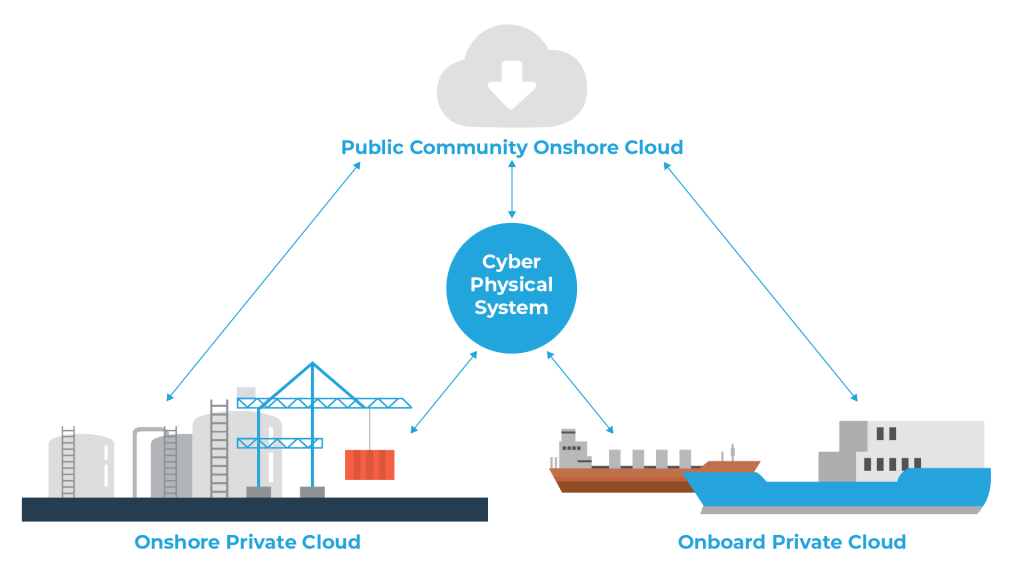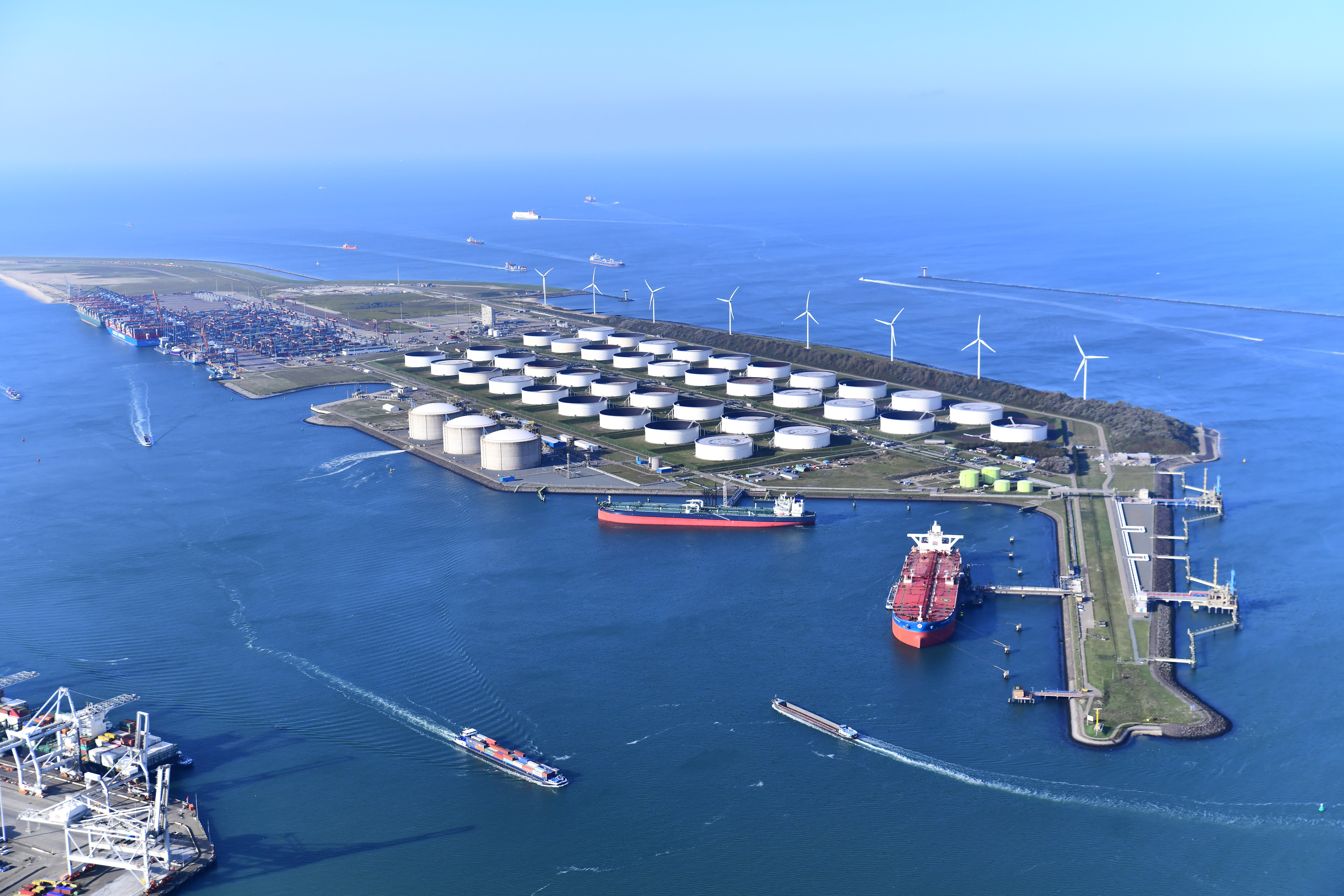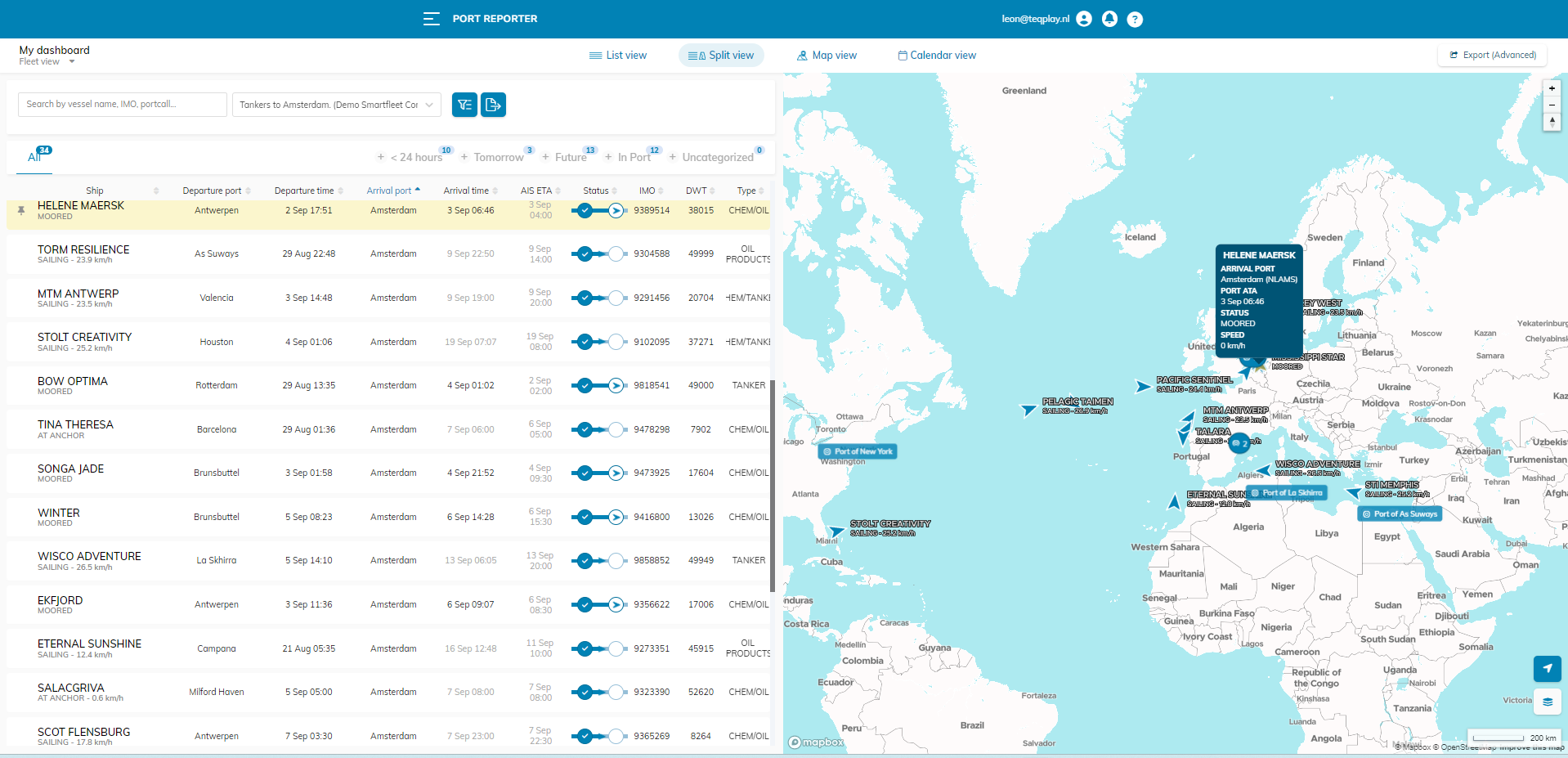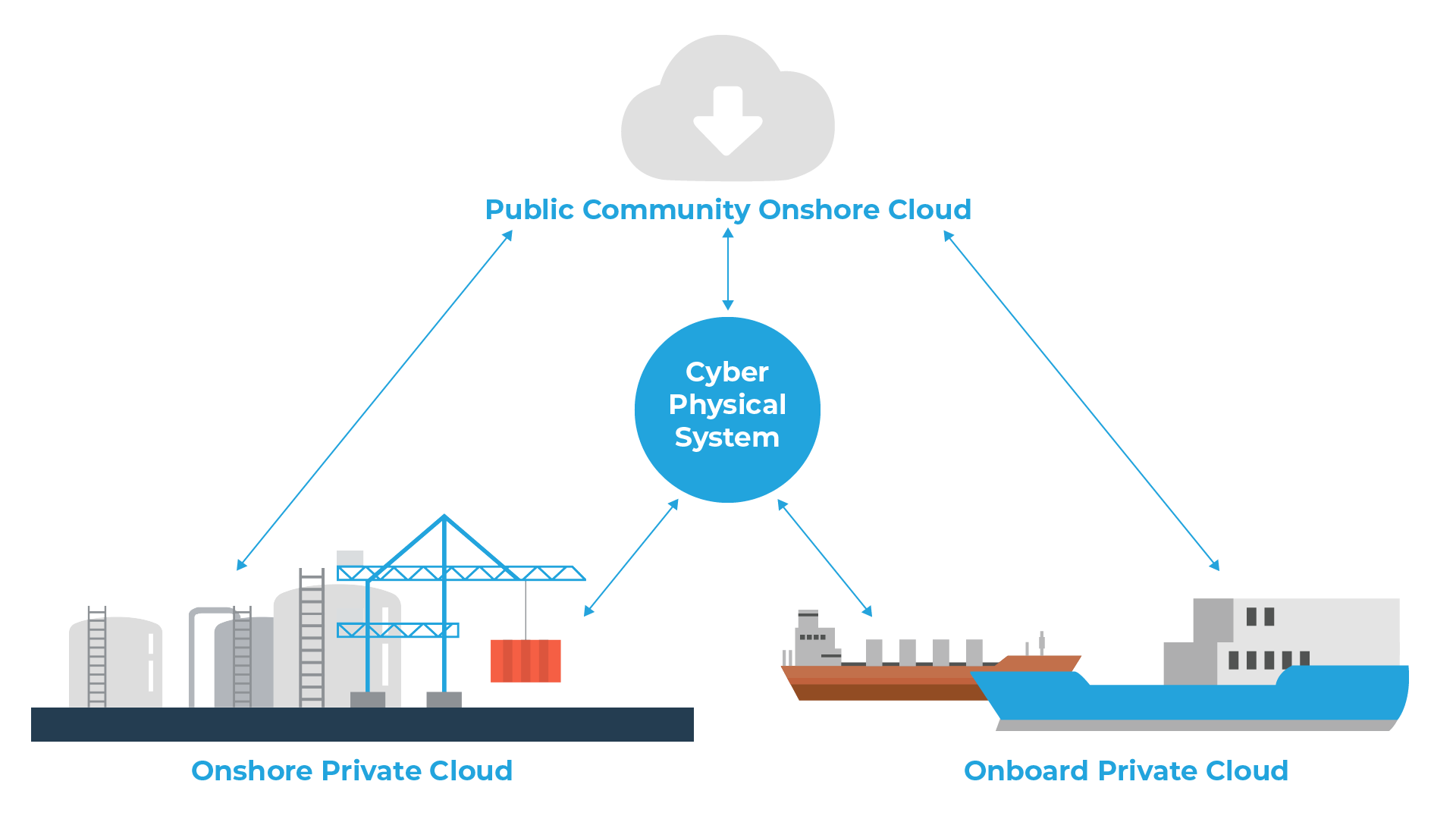Global disruptions, increasing environmental and sustainability concerns, and adapting to rapid technological developments – these are among the many challenges that the maritime industry constantly faces. In order to remain competitive and profitable, maritime businesses need to adapt and optimize their operations, and so port call optimization has become a priority for stakeholders.
One of the biggest obstacles of port call optimization is low availability of data and collaboration among different actors. Data sharing is crucial in building a system that could optimize maritime operations, but in reality, the necessary data are either unavailable digitally or not shared by the parties involved. In order to not only adapt to changes but also thrive in them, ports will need to embrace digital transformation first and foremost.
The digital transformation of the maritime sector is not simply about digitizing information. It’s about creating an intelligent system that can support decision making, automate repetitive and time-consuming tasks, and overall increase the efficiency of operations. In order to achieve this, various systems and processes need to be synchronized, which requires efficient data exchange between ship and shore.
With port call optimization in mind, improving data exchange needs to become an important goal for port actors. Data exchange also needs to be safe and secure, on top of being efficient. Creating a standardized process is also essential in ensuring both cyber security and increasing data quality.
Cyber-Physical System
The creation of a Cyber-Physical System (CPS) is one of the newer developments in the maritime industry. A CPS consists of “smart” objects that gather information through IoT systems and enable autonomous decision making. By seamlessly integrating different elements and components of the port network, a CPS can minimize human involvement and reduce risk of human errors. However, this does not mean that CPS is meant to replace humans altogether – rather, it is a tool that both incorporates and supports those involved in the process.

For a CPS to be successful, not only coordination among objects is needed, collaboration among stakeholders is also essential. The challenge of building a CPS that can assist in port call optimization lies in data exchange – without quality data capable of providing accurate real-time updates, it will not be possible to achieve autonomous decision making.
Data security
Digitizing and improving data exchange is not only for increasing efficiency. Over the years, cybersecurity has become a major concern for the industry. To achieve stable growth and protect against potential cyber threats, it is crucial for the industry to stay up to date with the state of maritime data infrastructure, as well as continuously improve upon it.
For stakeholders, the security of their data is one of the concerns that lead to reluctance in data sharing. While digital transformation has the potential to tremendously improve operations and processes, it can be dangerous without the proper caution and constantly staying up to date. Thus, protecting the integrity of the CPS is of utmost importance in ensuring the safety of data exchange.
Improving maritime data exchange
There are always many different types of data coming from various sources, and keeping the data flow consistent is a big challenge. The lack of standardization makes it difficult to trust in the quality of data or utilize it efficiently.
Electronic documentations that can be easily verified and managed are an important part of improving ship and shore data exchange. In order to achieve this, there needs to be strong standards that the industry can adopt. Above all, key players in the maritime industry need to deepen collaboration among one another. Without solid coordination, it will be difficult to achieve the optimal data flow, or build a strong foundation for data infrastructure among the vessels and shore.
The standardized digitalization of important documentations such as the bill of lading (BL) or the statement of facts (SoF) will help streamline the process of shipping and ease management. Digital transformation of processes not only saves time for port actors, but also ensures future growth for the industry as a whole. As demands grow, this will be an inevitable and necessary development, and maritime businesses will need to keep up with innovations and strive toward better synchronization in operations.
Notable initiatives
Due to the importance of improving maritime data exchange, various relevant initiatives have emerged. The Digital Container Shipping Association (DCSA) is a non-profit organization whose mission is to establish a standardized digital foundation for maritime data exchange. DCSA’s actions have shown to improve communication and collaboration among maritime organizations, and overall create better visibility for the industry.
Other notables include VAKT and Covantis, emphasizing the creation of a single point of truth driven by technology, improving information exchange. All initiatives share a common goal: leverage technology and collaborate to improve and secure data flow.
As an experienced player in the maritime field, Teqplay also sets out to support maritime stakeholders in achieving this goal and ensuring a brighter future for the industry. Each of Teqplay’s solutions and services aim to provide real-time insights and predictions based on quality data. By combining Teqplay’s expertise in technology and data with our experience in the maritime world, we are always ready to assist and collaborate with the industry on our shared journey toward a digital future.

Léon Gommans | CEO/Co Founder of Teqplay
A serial entrepreneur who’s passionate about #innovation, #technology, #collaboration, and of course, #maritime. The mission is: to connect the dots & to get it to work, together with the industry!
- +31 (0)6 55306660
- leon@teqplay.com
- Léon Gommans







